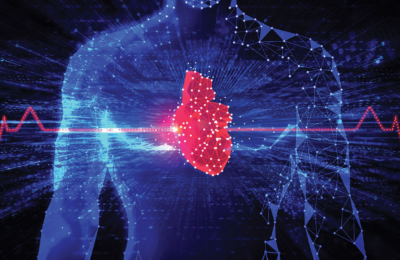STAGE aims to demonstrate the importance and feasibility of a life-course approach to prevent accelerated ageing, as defined by the accumulation of multi-morbidity, and to integrate knowledge into transferable person-centred solutions for early diagnosis and screening, treatment and long-term management of multi-morbidity. To achieve this, STAGE is proposing a life-course approach to better understand ageing with multi-morbidity, providing evidence-based solutions to support the transformation of healthcare to address the profound health and demographic challenges ahead. The approach capitalises on European collaborations of longitudinal cohorts and biobanks spanning the entire life-course, actioning exposome and disease networks trajectory analysis, as well as, the biology of ageing, to explore how a person develops ageing with multi-morbidity. The project objectives integrate an ethical, social, historical, and infrastructural framework; environmental, epidemiological and biological life-course approaches; artificial intelligence powered integrated person– centred solutions and applications; cohort-based clinical studies; and a FAIR (findable, accessible, interoperable and reusable) life-course health and geospatial data portal with robust management, dissemination, engagement and exploitation activities. STAGE’s evidence– based methods will translate into a person-centred prevention and care intervention in longitudinal cohorts in Finland and Germany, co– designed with citizens, patients, healthcare providers, SMEs, and policymakers. It will also embed social sciences and humanities and engage stakeholders to develop a neighbourhood healthy ageing index, person-centred predictions of multi-morbidity, and healthcare and policy recommendations. Ultimately, STAGE will create solutions for agile, high-quality, person-centred health and care services that are life-course and gender sensitive, needs-based, and designed to enhance resilience and participation.
SRDC will lead WP7, Person-centred applications and solutions for clinicians and ageing citizens. In this context, SRDC is responsible from the design and development of personalised decision support tools for primary and community-based health care providers to (i) screen ageing citizens for monitoring risk factors, (ii) offer timely preventive measures, and (iii) proactively manage age-related conditions. SRDC will integrate AI based, data–driven predictive algorithms developed by WP6 to guide the clinical workflow for primary and community-based health care providers. Clinicians will be able to screen their patients for possible risk- factors, by seamlessly processing patient’s existing data from Electronic Health Records (EHR) of the patient as well as the lifestyle and environmental data collected by the patient. SRDC is also leading the integration of person-centred applications and solutions for clinicians and ageing citizens developed in WP7. An HL7 FHIR based integration will be achieved, where collected patient data via Task 7.2, the intervention plan created by Task 7.1 will be represented in HL7 FHIR in a machine processable manner. Finally, in WP9, SRDC will provide a web-based user interface: FAIR data point, allowing external users, where resource providers (e.g. of cohorts, hallmarks of ageing, maps etc.) can directly add new life-course metadata to a FAIR data platform.
| 1. | University of Oulu | Finland |
| 2. | Helmholtz Centre Munich | Germany |
| 3. | Erasmus University Medical Center | Netherlands |
| 4. | University of Turin | Italy |
| 5. | Utrecht University | Netherlands |
| 6. | University of Bristol | United Kingdom |
| 7. | Stichting VUmc | Netherlands |
| 8. | Region Hovedstaden | Denmark |
| 9. | University Medical Center Groningen | Netherlands |
| 10. | University of Barcelona | Spain |
| 11. | Imperial College London | United Kingdom |
| 12. | University of Rome Tor Vergata | Italy |
| 13. | Technical University of Munich | Germany |
| 14. | University of Liege | Belgium |
| 15. | Ruhr University Bochum | Germany |
| 16. | Ab.Acus Srl. | Italy |
| 17. | SRDC | Turkey |
| 18. | LIVA Healthcare A/S | Denmark |
| 19. | WEDO | Estonia |
| 20. | Beta Technology Ltd. | United Kingdom |
| 21. | University of Haifa | Israel |
| 22. | European Association for the Study of Obesity | Ireland |









